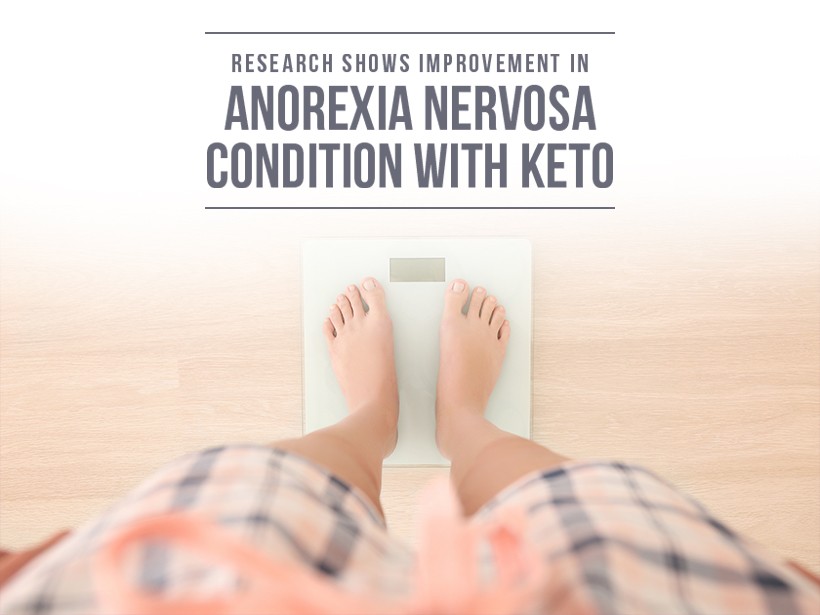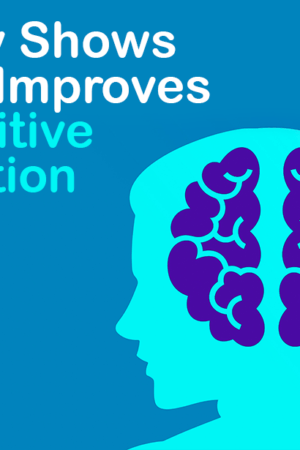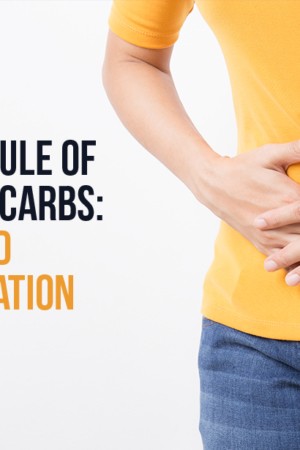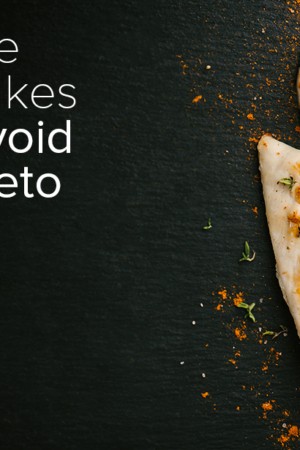Research shows the ketogenic diet can potentially improve anorexia nervosa by preserving morale and physical health.1 Here’s what you need to know:
Anorexia Nervosa
Anorexia nervosa is a condition characterized by a distorted body image that can become unhealthy and even life-threatening. People with anorexia nervosa are afraid of being overweight.
People with anorexia nervosa can suddenly go from healthy to sick because of excessive weight loss. This is associated with many side effects in females, including spontaneous menstruation, short stature, and delayed physical maturation. Males also experience similar height and physical side effects. In a study of anorexia nervosa, scientists observed 12 patients over a 10-year span.2 One male in the study weighed just 45 pounds; the participant with the highest weight was a 21-year-old female who was 5 ft 9 inches tall and just 100 pounds.
People with anorexia stubbornly think that their underweight condition is healthy. There are several classic symptoms which characterize this condition. First, they have a warped perception of the nutritional signals their body sends them. Second, anorexic patients experience delusional perceptions of their body weight, as mentioned earlier. Finally, anorexic patients see themselves as “puppets” and defenseless against the people around them.
Symptoms of Anorexia Nervosa
Symptoms of anorexia nervosa are broad and worsen over time. In a study of 119 patients, these symptoms were narrowed to a specific list.3 The most severe symptom was death, with the least common symptom being a personality disorder.
- Mortality
- Affective disorders (depression, mania, anxiety, and panic)
- Neurotic or Anxiety Disorders
- Obsessive-Compulsive Disorders
- Schizophrenia
- Personality Disorders
Who’s Most At Risk?
Women between 14 and 60 years of age are most at risk to develop anorexia nervosa. Males are affected as well, but not as much within the same age range.
Current Treatments
Current treatments come in the form of therapies, medications, and specialists. Therapies include support groups, cognitive behavioral therapy, and family therapy. The most common medications are Citalopram and Fluoxetine. Relevant specialists are nutritionists, psychiatrists, clinical psychologists, and primary care providers. 4
Ketogenic Diet
A newer therapy is the ketogenic diet. Nutritionists found the ketogenic diet can induce anxiolytic (i.e., anxiety-relieving) conditions. Anxiolytic conditions are induced in the brain in patients suffering from anorexia nervosa. Relieving the anxiety that causes many of the symptoms associated with anorexia is a key step in treatment.
NUTRITIONAL DISCLAIMER
The content on this website should not be taken as medical advice and you should ALWAYS consult with your doctor before starting any diet or exercise program. We provide nutritional data for our recipes as a courtesy to our readers. We use Total Keto Diet app software to calculate the nutrition and we remove fiber and sugar alcohols, like erythritol, from the total carbohydrate count to get to the net carb count, as they do not affect your blood glucose levels. You should independently calculate nutritional information on your own and not rely on our data. The website or content herein is not intended to cure, prevent, diagnose or treat any disease. This website shall not be liable for adverse reactions or any other outcome resulting from the use of recipes or recommendations on the Website or actions you take as a result. Any action you take is strictly at your own risk.
- Research Shows Improvement in Anorexia Nervosa Condition With Keto - August 6, 2018
- New Potential for Ketogenic Diet to Prevent Alcohol Withdrawal Syndrome - August 1, 2018
- Woman on Early Menopause Saved By Keto - July 25, 2018




